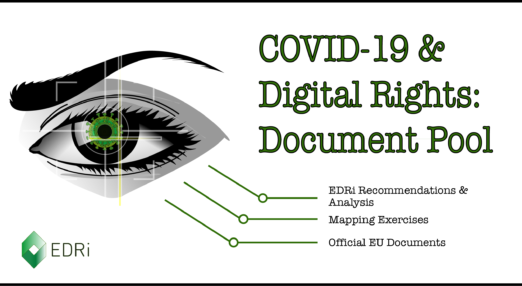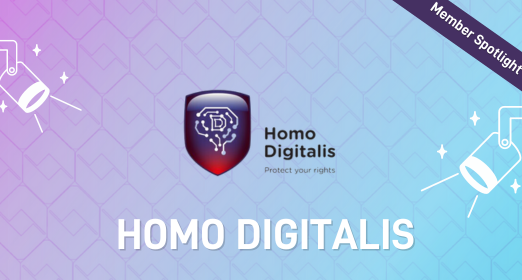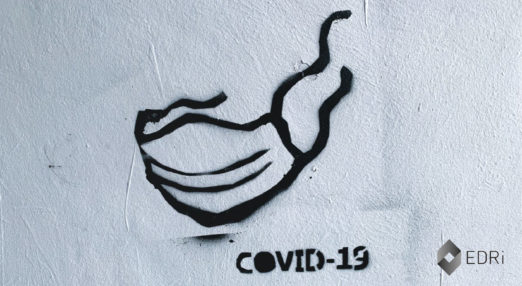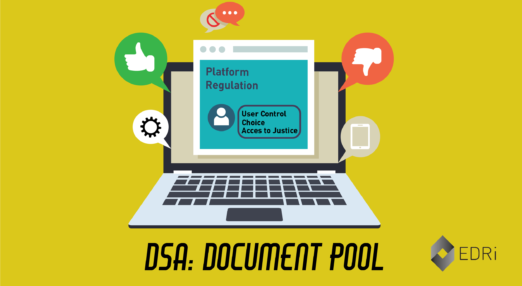Our work
EDRi is the biggest European network defending rights and freedoms online. We work to to challenge private and state actors who abuse their power to control or manipulate the public. We do so by advocating for robust and enforced laws, informing and mobilising people, promoting a healthy and accountable technology market, and building a movement of organisations and individuals committed to digital rights and freedoms in a connected world.
Filter resources
-

Austria’s biggest privacy scandal: residential addresses made public
Nobody took data protection into account for the so-called “Supplementary Register for Other Concerned Parties” (Ergänzungsregister für sonstige Betroffene). The Ministry for the Economy and the Finance Ministry are responsible for a data breach to which the Austrian Economic Chambers were an accomplice.
Read more
-

Google: seizing a crisis to legitimise mass surveillance?
Even in times of Corona, Google follows you wherever you go. The company collects and processes all our location data en masse and can thus graph how well we adhere to the imposed measures.
Read more
-

COVID-19 & Digital Rights: Document Pool
Find in this EDRi doc pool all relevant articles and documents around the COVID-19 crisis and digital rights.
Read more
-

EDRi-gram 18.8, 29 April 2020
"The upcoming Digital Services Act (DSA) must address the issue of political microtargeting. It is a once-in-a-decade chance to correct the power imbalance between platforms and user."
Read more
-

Member in the Spotlight: Homo Digitalis
Homo Digitalis is the only digital rights civil society organization in Greece. Its goal is to protect of human rights and freedoms in the digital age by influencing legislators & policy makers on a national level, and raising awareness amongst the people of Greece regarding digital rights issues.
Read more
-

Why COVID-19 is a Crisis for Digital Rights
The COVID-19 pandemic has triggered an equally urgent digital rights crisis. New measures being hurried in to curb the spread of the virus, from “biosurveillance” and online tracking to censorship, are potentially as world-changing as the disease itself.
Read more
-

Everything you need to know about the DSA
We have created a document pool in which we will be listing relevant articles and documents related to the DSA. This will allow you to follow the developments of content moderation and regulatory actions in Europe.
Read more
-

#WhoReallyTargetsYou: DSA and political microtargeting
Europe is about to overhaul its 20-year-old e-Commerce Directive and it is a once-in-a-decade chance to correct the power imbalance between platforms and users. As part of this update, the Digital Services Act (DSA) must address the issue of political microtargeting (PMT).
Read more
-

Digital Services Act / Digital Markets Act: Document pool
The DSA-DMA package will affect how intermediaries regulate and influence user activity on their platforms, including people's ability to exercise their rights and freedoms online. It also aims at limiting the abuse of power by very large and gatekeeper platforms.
Read more
-

COVID-19: A Commission hitchhiker’s tech guide to the App Store
How's does the European Commission's toolbox and data protection guidelines fit with the EDRi network's take?
Read more
-

EDRi-gram 18.7, 15 April 2020
"What can the experiences of the UK, Poland and Hungary teach states about how to stop the spread of coronavirus - without leaving the door ajar for future fundamental rights violations to creep in?"
Read more
-

Technology, migration, and illness in the times of COVID-19
In our ongoing work on technology and migration, we examine the impacts of the current COVID-19 pandemic on the rights of people on the move and the increasingly worrying use of surveillance technology and AI at the border and beyond.
Read more
